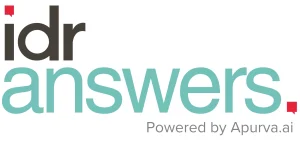
What is IDR Answers?
IDR Answers is the world’s first AI-powered search and analysis engine built to answer your questions about social impact in India.
By tapping into IDR’s repository of over 2,000 articles written by more than 1,500 contributors, IDR Answers provides you with wide-ranging information on diverse topics, and delivers clear, actionable insights to help you make sense of it all.

What makes IDR Answers different?
Every response on IDR Answers is fact-checked and cited, so you can trust the information and explore the sources for yourself. What’s more, because these are drawn from IDR articles, you can be assured that the answers you get are based on the knowledge of experts in the sector. These include nonprofit leaders, frontline workers, philanthropists and CSR heads, researchers, practitioners, and others. And this is what makes IDR Answers different from other generative AI platforms.

Simply click on the links to access the full articles and dive deeper into them.
How does it work?
Curious about sustainable agricultural practices or about how India is tackling the water crisis? Go ahead and ask IDR Answers!
Our AI engine will sift through everything IDR has published on the subject and produce a detailed, well-rounded response complete with relevant sources.
And that’s not all.
You can use the strategic analysis feature to:
- Challenge the assumptions being made in the answers.
- Address biases, blind spots, and process bottlenecks.
- Analyse interactions between varied components to understand how systems work.
- Anticipate and mitigate unintended consequences of actions.
- Apply foundational thinking for informed and proactive decision-making.
So what are good questions to ask?
Questions that are contextual, complex, and seek answers that offer insight and analysis will produce the best results. On the other hand, questions that are highly specific or niche, ask for information outside IDR’s purview, and involve date ranges might result in inaccurate answers.

Here are some examples of good questions:
- How does deforestation impact Leh’s ecosystem?
- How does childcare impact women’s employment rates in India?
- What role does technology play in health?
- What strategies can improve women’s financial inclusion?
- How do nonprofits address health problems in communities?
- What is the relationship between caste and philanthropy?
- What is the difference between systems thinking and systems change?
Here are some questions that—as with all generative AI platforms—IDR Answers will find difficult to respond to:
- Who funds gender in India?
- Can you list the nonprofits that work on agriculture in Telangana?
- I have a nonprofit that works on education. Whom can I collaborate with?
- Can we use a combination of open-source and proprietary software, while very much supporting the politics of open-source software?
- What was the rate of unemployment in India in 1997?
- How many articles have the word ‘technology’ mentioned in them? Group them into different categories.
So, in conclusion, you can leverage IDR Answers to access insights and analyses, ask related questions, and even learn from what others are asking by viewing the Trending Questions.
It can gather and connect various pieces of information you might not have been aware of, organise them according to your area of interest, and help you learn faster, allowing you to do more—and do it better.
Your questions will in turn help us at IDR to understand what you want to read and know more about, the themes that we aren’t highlighting enough, and find ways to fill in the gaps by continuing to produce knowledge that drives social progress.
